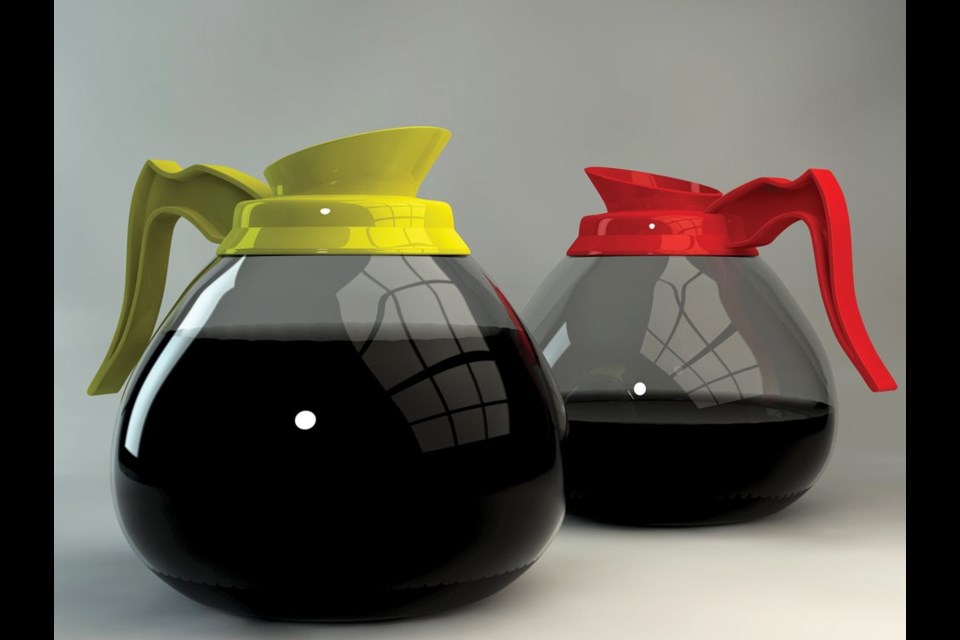I think I started drinking coffee at about age 11, about the same time I learned how to drive a stick-shift pickup truck. I wasn’t a particularly good driver, but I could drive around a farmyard without hitting any sheds or the barn.
I could make a mean cup of coffee in our percolator from an early age, though.
Most people had a thermos full of hot coffee next to them in their vehicles. You could grab the attached cup, fill it and never let yourself get low on caffeine.
The coffee pot was turned off after our mid-afternoon lunch.
Now and then, we had black or green tea for dinner. It was prepared in a brown glass pot, and we would suspend a stainless steel tea ball on a chain into the pot. I was able to put the tea leaves in the ball and watch while the hot water was poured over the top.
When I was older, my mom told me that if she wasn’t having the best meal, she’d dress up the meal with tea. That worked for me.
I felt quite grown up and sophisticated when we had tea with our evening meal. I probably extended my pinky finger as I sipped the green tea, like any fine young lady of the royal family, I presumed. I put a lot of milk and sugar in it.
I enjoy a cup or two of coffee a day, but I have a cup of decaffeinated tea before I retire for the evening. Tea, coffee and any other beverage count toward our fluid needs, although caffeinated beverages are a bit less hydrating than plain water.
Many grocery stores have a large selection of teas from which to choose. Approximately 86 per cent of tea servings are black tea and 13 per cent green tea. The rest of our tea consumption is oolong and white.
Tea consumption is most popular in the form of iced tea by far.
Tea, without cream and sugar, has no calories, so it’s a good diet drink. In fact, tea has been shown to contain numerous antioxidant compounds with potential health benefits and even may help with weight management. Antioxidants neutralize free radicals, which are compounds formed in the body linked to chronic disease.
In other words, when you sip tea, you might be knocking out some scoundrels doing damage to your body at the cellular level. Fruits and vegetables are other potent contributors of disease-fighting antioxidants.
Green tea is especially high in compounds called “catechins” that have antioxidant effects. In fact, some studies have shown that tea may reduce our risk for heart and blood vessel disease, cancer and diabetes. Although we do not have a general recommendation for tea consumption, even a small amount of tea may enhance health.
Here’s how to brew a good cup of tea:
Bring water to a boil in a glass or enamel container (not aluminum) and remove from heat for one to three minutes.
In a teapot made of glass, china or porcelain, place about 1 teaspoon of tea leaves for every 6 ounces of water. Allow the tea leaves to move freely in the water and then strain when pouring the tea. Or, if using an infusion basket or tea ball, select one large enough to allow the leaves to move.
Steep for three to five minutes, or experiment to find the optimum brewing time for the desired flavour.
Warm the tea cup before serving.
This sounds a lot like the way my mother used to make our green tea. Yes, moms do know best.
Here’s a delicious muffin recipe with antioxidant-rich blueberries and fibre-rich oatmeal to enjoy with your favourite hot beverage. By the way, coffee will be a topic for a future column, so stay tuned. Visit https://www.ag.ndsu.edu/food for more recipes to enjoy.
Blueberry and Oatmeal Power Muffins
2 c. all-purpose flour
1 c. oats, quick or regular
2/3 c. sugar
1 tsp. baking powder
1 tsp. baking soda
1/2 tsp. salt
1-1/2 c. honey non-fat Greek yogurt
2 large eggs, lightly beaten
4 tbsp. unsalted butter, melted and slightly cooled
1 tsp. vanilla extract
1 c. fresh blueberries
Heat oven to 350 F. Coat muffin tin with cooking spray or liners. Combine flour, oats, sugar, baking powder, baking soda and salt in a bowl. Combine yogurt, eggs, butter and vanilla in a second bowl. Fold yogurt mixture into dry mixture; stir to combine completely. Gently fold in blueberries. Spoon into muffin tins. Bake until top is golden and a toothpick inserted in centre comes out clean, approximately 20 to 25 minutes.
Makes 16 servings. Each serving has 170 calories, 4.5 grams (g) fat, 4 g protein, 29 g carbohydrate, 1 g fibre and 210 milligrams sodium.



